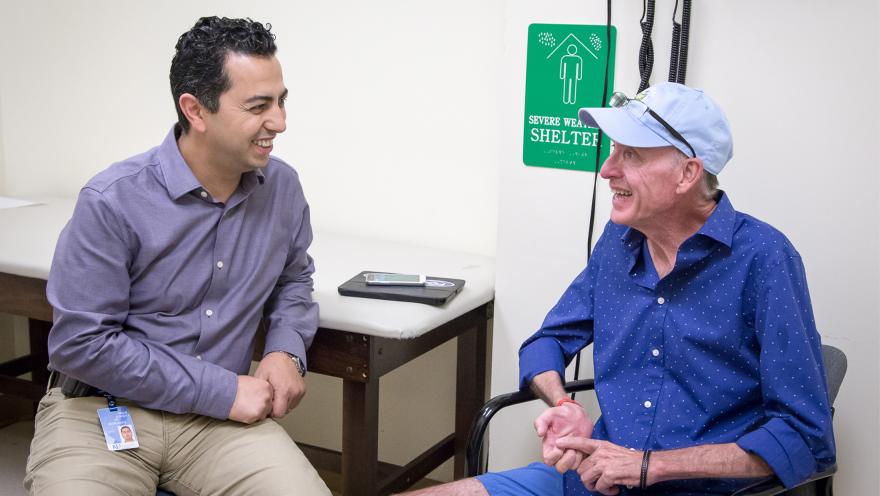
Meeting with a Genetic Counselor
When you meet with a genetic counselor for the first time, they will likely ask you to bring your medical records and a list of your family members. During this conversation, they will take a detailed medical and family history and will be especially interested in knowing whether any family members have been diagnosed with ALS or frontotemporal dementia (FTD), as well as other motor neuron diseases, movement disorders or dementias. The counselor may draw a detailed family tree (pedigree) going back at least to your great-grandparents. All of this information will help the genetic counselor assess your potential risk of having an ALS-linked genetic mutation.
You also will talk about the potential benefits and drawbacks of genetic testing in addition to your concerns and values to help you decide whether or not to get tested. The genetic counselor can also help explain the range of possible test results – positive, negative or uncertain – as well as the current limitations of these tests.
If you choose to get a genetic test, your genetic counselor will explain and have you sign a consent form, along with helping you find out if genetic testing is covered by your insurance. After the test, they will review and help interpret your results. Finally, your counselor will help you plan next steps, such as additional screening or entry into a clinical trial.
For more information about genetic counseling or to find a counselor in your area, please visit the National Society of Genetic Counselors at www.nsgc.org.
Questions to Ask a Genetic Counselor
Your genetic counselor is a reliable resource who can answer questions about how genetics and genetic testing may affect you and your family. Some questions you may want to ask include:
- What are the potential medical, financial, and psychological risks of getting a genetic test?
- What if I don’t have detailed information about my family history?
- What is the testing process like?
- Is this test covered by my insurance?
- How accurate is genetic testing?
- What will the results of the test tell me?
- What can I do with the information I get?
- How will the results of my test impact my medical care?
- How could the results affect my insurance (life, disability, long-term care) coverage?
- Are there any support resources available to me?
Cost of Genetic Counseling
Genetic counseling is often covered by health insurance, but there still might be out-of-pocket costs if you have not met your deductible or if there is a co-pay. If you have questions about what an appointment with a genetic counselor might cost, talk to your insurance company. For people who do not have health insurance, counseling sessions typically cost $150 per hour or more.
Download Genetic Counseling Information Sheet
Free Genetic Testing and Counseling with ALS Identified
The ALS Association believes that people living with ALS and their families must have the right to access genetic counseling and testing, education about clinical genetics in ALS, and safeguards against genetic discrimination.
ALS Identified, a program sponsored by Biogen and offered through the diagnostic company Invitae, offers free genetic testing and post-test counseling to people with ALS and their families.
For more information about ALS Identified and how to participate, click here.
Click here to download a printable summary of this page.
Learn more about genetic testing and counseling in a video from experts through our collaboration with the International Alliance of ALS/MND Associations.
